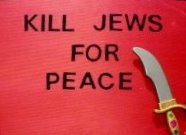Purim- Ve'Nahaphochu!

Rosh Chodesh Adar II is on Friday and Shabbat, inaugurating the month of the most joyous holiday of Purim. Purim, celebrated on the 14th of Adar (or the 15th of Adar in Jerusalem), commemorates the miraculous rescue of the Jewish people from near-annhilation as recorded in Megillat Esther (Book of Esther). It is marked by jubliation, masquerading, sending mishloach manot (food portions), festive meals, reading the Megillah, drinking and gifts to the poor.
In the days of the king Achasverosh, king of Persia, ruler from India until Ethiopia, 127 provinces, the Jews lived scattered. Achasverosh, a foolish king who enjoyed partying, decided to mark the third year of his reign with a lavish six-month orgy and revelry. Towards the end of the celebration, king Achasverosh summoned his queen Vashti to dance naked before his guests. The queen, of royal blood herself and very proud, refused such a humilating summon and, at the behest of the king's advisers, she was removed from queenhood and exiled. Accross the Persian Empire, officials are appointed to search for a beautiful maiden to succeed Vashti as queen. In the capital of Shushan, Esther, niece of the Jewish community leader Mordechai, descendant of the former king Saul, is brought before the king. Before appearing before him, Mordechai warned Esther not to disclose her origins. After many months of searching, Achasverosh was smitten with Achasverosh and chose her to be his queen. In the meantime, Mordechai uncovered a plot by the king's guards, Bigtan and Teresh, to assassinate him and informed Esther, saving the king's life.
Haman, descended of Agag, the ruler of Amalek, rose to become Achasverosh's Prime Minister. The king commanded that all bow to Haman and pay homage to him. Mordechai alone refused to bow to the wicked Hamas and, enraged, Hamas proposed a Final Solution to Achasverosh. "'There is a certain people scattered abroad and dispersed among the peoples in all the provinces of thy kingdom; and their laws are diverse from those of every people; neither keep they the king's laws; therefore it profiteth not the king to suffer them. If it please the king, let it be written that they be destroyed; and I will pay ten thousand talents of silver into the hands of those that have the charge of the king's business, to bring it into the king's treasuries.'" (Esther 3:8-9). A royal edict was disseminated throughout the empire that decreed "to destroy, to slay and to wipe out all Jews, young and old, both little children and women, on one day" (3:13), on the 13th of Adar. To determine this day, Hamas cast pur, lots, hence the name of the holiday. The decree was met with great sorrow and mourning in all the Jewish communitees.
In Shushan, Mordechai tore his clothing and donned sackcloth and ashes and sent a copy of the decree to Esther that she should intercede before the king. Esther replied that she cannoot under pain of death approach the king without being summoned. Mordechai warned her that she would not remain untouched by Haman's decree. "Think not with thyself that thou shalt escape in the king's house, more than all the Jews. For if thou altogether holdest thy peace at this time, then will relief and deliverance arise to the Jews from another place (Makom, the Omnipresent One), but thou and thy father's house will perish; and who knoweth whether thou art not come to royal estate for such a time as this?" (4:13). Esther told Mordechai to gather all of the Jews of Shushan together, that they should fast and pray three days along with her before she appeared before the king.
Miraculously, the king graciously accepted Esther's entry into the royal court and granted her virtually any request: that he and Haman join her for a banquet. At that banquet, Esther invites them to a second one. After the banquet, Haman saw Mordechai who again refused to bow. When he returned home, his evil wife, Zeresh, proposed that Mordechai be hung and Haman prepared the gallows.
That night, Achasverosh could not sleep and called in his attendant to read to him from the book of royal chronicles. Achasverosh is reminded of how Mordechai saved him from the assassination plot and he wonders how to repay him. That same night, Haman came to see the king about hanging Mordechai. The king asked is trusty adviser what the appropriate reward for someone with whom the king is pleased should be. Haman, thinking that the king is refering to himself, tells him that such a man should be clad in the royal garments and lead into the streets of Shushan on the king's horse and that they should call before him, "this is what shall be done to a man in whom the king is pleased". Happy with Haman's council, Achasverosh informed him that he should lead Mordechai the Jew down the streets of Shushan.
At the next banquet, Esther informed the king of Haman's cruel plot. "If I have found favour in thy sight, O king, and if it please the king, let my life be given me at my petition, and my people at my request; for we are sold, I and my people, to be destroyed, to be slain, and to perish. But if we had been sold for bondmen and bondwomen, I had held my peace, for the adversary is not worthy that the king be endamaged." (7:3) Outraged, the king hanged Haman on the very gallows that he had prepared for Mordechai.
In a reversal of fortune, Mordechai was named Prime Minister in Haman's stead and a second edict was sent out empowering the Jews to fight back against anyone who dared harm them. On the 13th of Adar, the day that was designed for the annhilation of the Jewish People, the Jews destroyed their enemies and the 10 sons of Haman were hanged. Mordechai and Esther established the 14th and 15th days of Adar as the days of Purim to commemorate these miraculous salvations, days of festive meals, the exchange of gifts of food, and the giving of monetary gifts to the poor. With Mordechai as Prime Minister, Persia flourished greatly. The planned destruction was foiled and "the month.. was turned unto them from sorrow to gladness, and from mourning into a good day." (9:22) "And to the Jews, there was light and happiness, jubliation and glory."
From a series of seemingly unconnected events, the Jews were saved from the evil designs of Haman. Purim, in contrast to Pesach, for example, is a holiday of covert miracles, and as such, the name of G-d does not appear once in the Megillah. In keeping with this theme of concealment, Jews customarily dress up for Purim and masquerade. Purim is the prototype of Jewish survival as many have conspired to wipe us out but have never succeed. As the Pesach Hagaddah declares, "in every generation, they have stood up against us to annhilate us, and the Holy One, Blessed be He, saves us from their hands.. Haman is gone, and his memory blotted out (we drown out his name with our graggers when it is mentionned during the Megillah reading), and we are still here. Hitler murdered 6 million of us but he is gone and we are stronger than ever. And today, there is a new Haman from Persia who seeks to wipe us off the map. Just as HaShem stood up for us in those days, so will we see a great miracle and there will again be light, happiness, jubliation and glory to the Jews. Amen, selah!
Cross-posted to Goat's Barnyard and Jewish Vengeance

























3 comments:
Hello Bar, Hope all is well. I've been praying for the peace of Jerusalem and I wanted to tell you that I stand with you my friend. When you hurt - I hurt.
Thanks again fo hosting a very cool site to hang and wise up.
yours til charcoal sprouts,
GsGf
Chag Sameach!
i was told by reb pinchas gelb that the whole thing started when mordechai camped outside of the palace to watch over his 'orphan' neice, esther. so, the whole salavation of the jews came from one person taking care of an orhpan.
Post a Comment